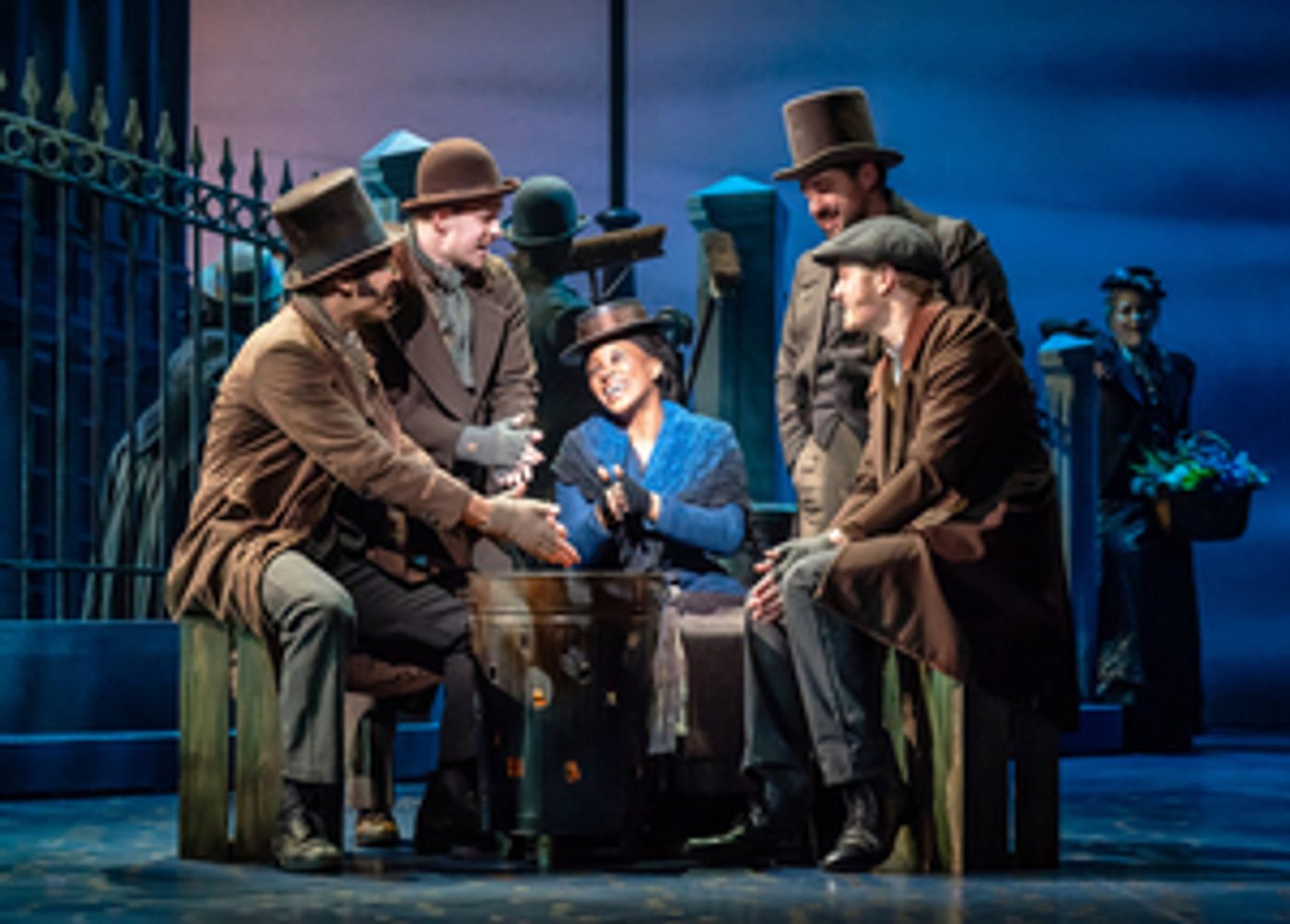Review: MY FAIR LADY, London Coliseum
Bartlett Sher's Broadway hit lands in the West End

![]() Expectations have been high for My Fair Lady. It is easy to see why it was such a hit on Broadway; brimming with English period tropes of top hats, Ascot races, lovable cockneys and snobbish toffs. Bartlett Sher's revival now comes to the West End. It looks stunning, but does not always hit the high notes.
Expectations have been high for My Fair Lady. It is easy to see why it was such a hit on Broadway; brimming with English period tropes of top hats, Ascot races, lovable cockneys and snobbish toffs. Bartlett Sher's revival now comes to the West End. It looks stunning, but does not always hit the high notes.
The musical was adapted by Broadway duo Alan Jay Lerner and Frederick Loewe from George Bernard Shaw's Pygmalion. A cockney dustman sells his flower-girl daughter, Eliza Doolittle, for £5 to a bullying professor, Henry Higgins, who thinks he can pass her off as a duchess.
Harry Hadden-Paton was an excellent choice when he was cast by Bartlett in the Broadway show and remains almost born to the role. At 41, he is a much younger Henry Higgins than 1964 film and remains incapable of emotional engagement. Hadden-Paton needs slightly more projection in the vast space of the Coliseum, but is very charismatic and unapologetically insensitive; a living product of his class and gender.
Casting Amara Okereke, the first black Eliza, adds the unspoken dimension of race, as well as class into the production. Okereke vocals have a real sweetness and a beautiful clarity; her rendition of "Wouldn't It Be Loverly?" is pensive and charming and "I Could Have Danced All Night" is joyful. However, her Eliza is rather too shouty and aggressive; there needs to be more lightness to the character.
Despite individual strengths, there is also a lack of chemistry between the Okereke and Hadden-Patton, which dulls the effect of the ending.
Stephen K Amos is enthusiastic, but miscast as Eliza's father. Alfred P Doolittle. Although the character remains thin, Sharif Afifi gives Eliza's foppish suitor Freddy a tender side. His rendition of "On The Street Where You Live" is sweet, but he struggles on some of the bigger notes.
Malcolm Sinclair is wise and charming as Colonel Pickering and Vanessa Redgrave is formidable as Eliza's greatest supporter, Mrs Higgins. Maureen Beattie is also notable as a brisk and efficient Mrs Pearce.
As a spectacle, this production looks fabulous. The ensemble pieces are wonderfully busy and tightly choreographed by Christopher Gattelli. "Get Me To The Church On Time" is a real spectacle, featuring cross-dressing can-can dancers with a boundless energy. The Ascot race scene is very funny, with the overtly clipped enunciation and bloodless movement of the upper classes on display. The huge orchestra is also on brilliant form, filling the huge space with precise sound.
Michael Yeargan's incredibly detailed sets are wonderfully evocative of the age: it may be the first time that the Royal Opera House has appeared inside the Coliseum, looming behind Covent Garden market. Higgin's home cleverly rotates to reveal different rooms and the scene changes to the doorway and lamp posts outside are seamless.
Gorgeously lavish costumes by Catherine Zuber look opulent and suitably over-the-top, particularly in the famous scene at Ascot races, which looks stunning in reams of elegant silver and lavender.
My Fair Lady remains a story steeped in misogyny and the limits of class in English society. Sher's version does nothing to challenge this, despite a token appearance of a protesting suffragette. There are no spoilers here, but the ending will divide opinion, as it echoes that of the original play, not the film. It will please many of the film's critics and those who root for an 'emancipated' Eliza, but some will view it as unsatisfying and unconvincing.
This is a beautifully designed and charming revival. Overall, it is not a vintage My Fair Lady, but it is a 'loverly' night out.
My Fair Lady is at the London Coliseum until 27 August
Photo Credit: Marc Brenner
Reader Reviews
Powered by
|
Videos

